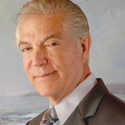
Owen Youngman
Even before I left the Chicago Tribune– beneficiary of a “grandfather” clause that allowed its parent company to own a newspaper, a radio station and a television station in the nation’s #3 market – I had seen that the cross-ownership ban was an artifact of an era of perceived scarcity of access to information for large swaths of the public and needed to fall in other markets, too.
It’s still true that TV stations, radio stations and daily newspapers aggregate larger audiences within most of the top 20 markets than do other information sources that seek to compete directly with them. But it’s also true that those audiences are much smaller than before cable TV and the Web increased consumer choice so dramatically, making additional voices and outlets available (if not always top of mind) to the citizenry. Freedom of the press can now belong not only to the person who runs a printing press installation, but to the person who’s running WordPress.
Nevertheless, if either of the preceding data points were the only factor in relaxing or retaining the ban, the issue would have been settled long ago through regulation or legislation.
The “public interest” question is the reason the ban has persisted. Its long life is emblematic of the lousy job that media companies have done in demonstrating that they can, and do, act in the public interest as much or more as they do in their own.
What local media companies lack, restricted in the number of channels and platforms they can own, is scale — the scale that seems like a right divinely granted to companies that grew up around technology. (In fact, in Chicago, the argument can easily be made that the divestiture of the Sun-Times that was forced on Rupert Murdoch in 1986 when he bought a TV station ultimately harmed both competition and the public interest.) The public does have an interest in these companies’ preservation — particularly in aspects of the information business, such as electoral democracy and government, where geography still matters more than audience demographics and purchasing power.
Today, sitting at a university instead of inside a media company, I still argue in favor of an end to the restriction, but not because of changes in ownership or in audience size. Instead I think that people — call them citizens, voters, consumers, whatever you like — today are utterly unlikely to be swayed by even constantly reiterated messages across multiple “major media.” Instead, they have transferred whatever faith they used to put into media institutions to something else: the technological tools that they use to bounce from information source to information source, and the companies that have made this so easy. (Siva Vaidhyanathan calls this version of faith “techno-fundamentalism” and warns of its dangers in his book “The Googlization of Everything.”)
What I’m saying is that no media company is likely, ever again, to have more mindshare or influence than does Apple or Google or Facebook, none of which has any particular civic purpose at its core. While an end to the ban will not guarantee that media owners keep their communities’ interests front and center, removing the restriction is a worthwhile way to find out if whether a revised business and economic model can allow them a little more headroom to do so.
Owen Youngman was appointed to the Knight Chair in Digital Media Strategy at Medill in January, 2009, after a 37-year career at the Chicago Tribune focused on new product development, innovation and interactive media. He is also the associate director of the Northwestern Center for Innovation in Technology, Media and Journalism, a collaboration between Medill and the McCormick School of Computer Science and Electrical Engineering that includes the Knight News Innovation Laboratory.







